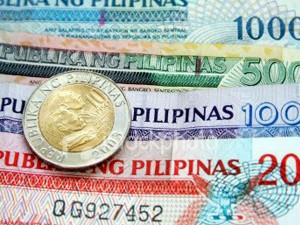
The Bangko Sentral ng Pilipinas said the peso would be allowed to strengthen some more this year if pressure would come from higher foreign direct investments.
The Bangko Sentral ng Pilipinas said the peso, the second-fastest appreciating Asian currency against the dollar last year, would be allowed to strengthen some more this year if pressure would come from higher foreign direct investments (FDIs).
BSP Governor Amando Tetangco Jr. said there indeed was a good chance for FDIs to start growing substantially this year given the improving outlook of businesses on the domestic economy.
With the positive impact of FDIs on job creation and the growth of the economy, the BSP finds it prudent to accommodate the effects of investment inflow on the exchange rate.
“It is imprudent to go against the fundamental trend so we would, as before, accommodate some peso appreciation,” Tetangco told reporters.
He stressed, however, that the BSP would not be tolerant of appreciation pressures resulting from the excessive inflow of foreign portfolio investments, or “hot money,” which are short-term and speculative in nature.
“But we would also continue to maintain a presence in the [foreign exchange] market to curb excessive volatility in the exchange rate. We are watchful of market conduct and will implement further macro-prudential measures, including refinements of those we have already put in place, to keep excessive volatility in market prices in check,” Tetangco also said.
Gross FDIs to the Philippines as of November last year amounted to $1.34 billion, up 6.8 percent from $1.26 billion. Net inflow of FDIs reached $1.13 billion, up by 32 percent from $853 million.
Officials attributed the higher FDIs to the country’s improving economic fundamentals, including faster economic growth, declining debt burden of the government and rising foreign-exchange reserves.
FDIs to the Philippines, however, remained anemic compared with the amounts cornered by neighboring countries.
Officials said the Philippines could get more FDIs starting this year, when the government and some economists from the private sector expect the country to finally get an investment grade credit-rating.
Tetangco said if such a positive outlook on FDIs would materialize, the BSP would allow its potential consequence of a further rise in the peso.
The peso closed at 41.05 against the dollar during the last trading day of 2012, appreciating by nearly 7 percent. This was the second-fastest rate of appreciation among Asian currencies and the fourth-fastest among all actively traded currencies in the world.